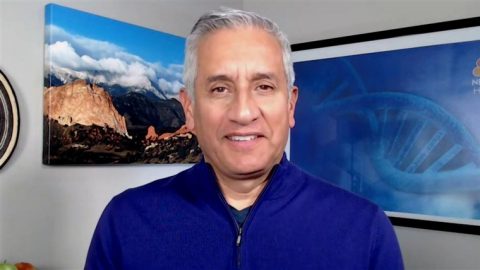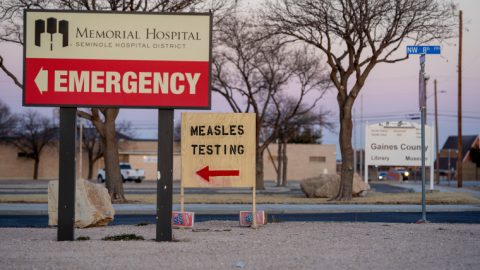
Michael Thompson, 60, of Iowa, was diagnosed with stage 3 throat cancer in May. Two months later, in July, he learned he would not be able to get cisplatin because of the ongoing shortage and would instead be given carboplatin. While the drugs are similar — both are platinum-based — carboplatin is less effective in treating his condition, his doctors told him. (Carboplatin, also made by Intas, is also in shortage, according to the FDA.)
“You can’t prepare yourself for that kind of news,” Thompson said. “Dealing with cancer is hard enough. But then, man, you don’t want to be hit with the news that the treatments that you need aren’t available, because that is really tough to swallow.”
The FDA says it’s doing everything possible to address the shortage.
In June, the agency said it would work with the Chinese drugmaker Qilu Pharmaceutical to import cisplatin. The cisplatin from Qilu is marketed and manufactured in China, but is not approved by the FDA in the U.S., although the import strategy is expected to increase the U.S. supply of the chemotherapy drug.
“That is a temporary measure,” the FDA’s Jensen said. “That import will continue until all the approved manufacturers are able to meet all patient needs.”
Jensen also said that the FDA is expediting its review of anything that another company would need to ramp up production or begin manufacturing cisplatin. The agency will also allow Intas Pharmaceuticals to distribute to the U.S. some cancer drugs that are in shortage, including cisplatin. However, a third party will need to verify the quality of the products before they are distributed, the agency said in a document.
The FDA’s moves are helpful, Fox said, but added they don’t solve the extensive supply chain issues.
“Clinicians are just really nervous about making plans for patients because there are a lot of unknowns right now,” she said.
In the meantime, Thompson hopes that the treatment he does receive will be effective. If not, his doctors are advising a total laryngectomy, or surgical removal of his larynx, which would leave him unable to speak.
“It’s an emotional struggle because you know you’re facing a life and death battle,” he said.









Recent Comments